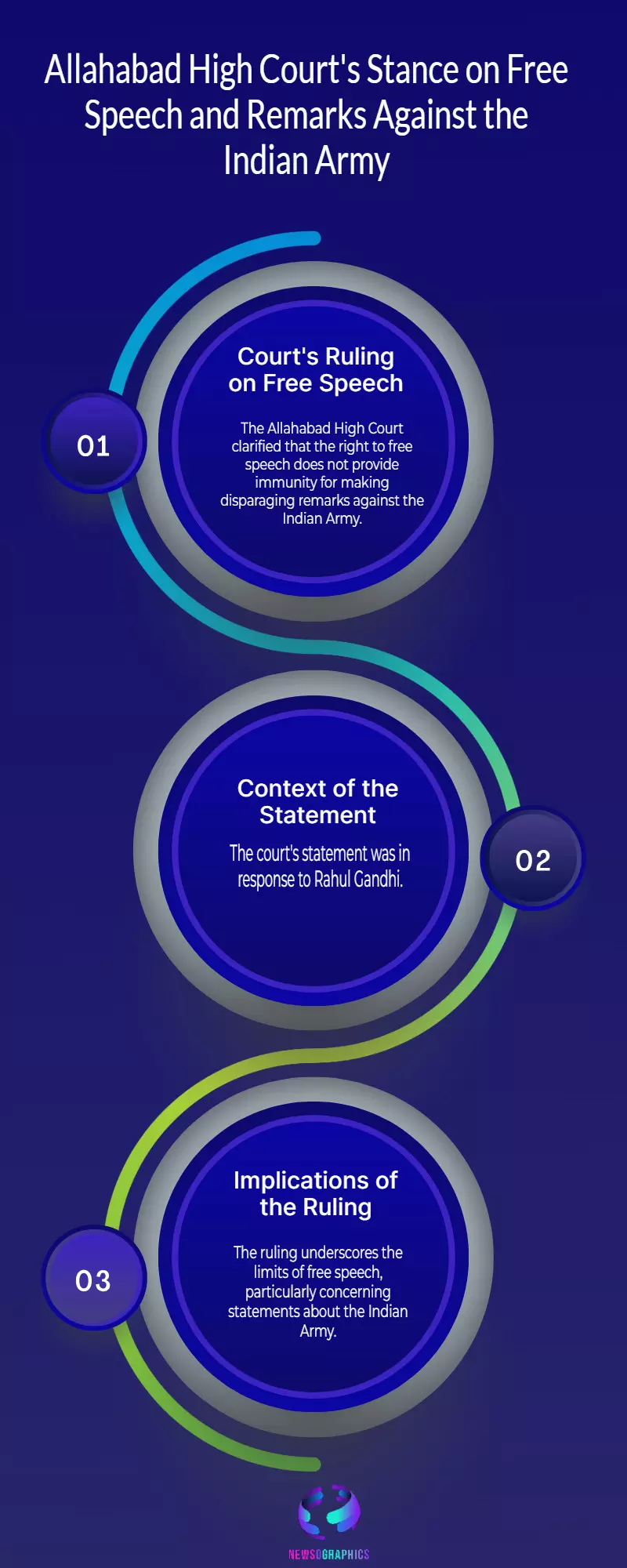Free speech doesn't extend to making remarks against Indian Army: Allahabad High Court to Rahul Gandhi

By : Sandhya
The High Court made the observation while rejecting a plea filed by Leader of Opposition Rahul Gandhi against a summoning order issued by a Lucknow court in defamation case.
The Allahabad High Court recently held that the right to freedom of speech and expression does not extend to making defamatory statements against the Indian Army [Rahul Gandhi v. State of UP].
The High Court made the observation while rejecting a plea filed by Leader of Opposition (LoP) Rahul Gandhi against a summoning order issued by a Lucknow court in connection with his alleged defamatory remarks against the Indian Army during the 2022 Bharat Jodo Yatra.
Single-judge Justice Subhash Vidyarthi observed that,
"No doubt, Article 19(1)(a) of the Constitution of India guarantees freedom of speech and expression, this freedom is subject to the reasonable restrictions and it does not include the freedom to make statements which are defamatory to any person or defamatory to the Indian Army."
Additional Chief Judicial Magistrate Alok Verma had directed Gandhi to appear for hearing on March 24 in the defamation case filed against him. Challenging this, Rahul had moved the High Court.
The complaint was filed by lawyer Vivek Tiwari on behalf of Uday Shankar Srivastava, a former director of the Border Roads Organisation with a rank equivalent to an Army Colonel.
Tiwari alleged that Gandhi’s remarks on December 16, 2022 regarding the December 9, 2022 clash between the Indian and Chinese armies were derogatory and defamatory towards the Indian military forces.
Gandhi had said that "Chinese soldiers are beating up Indian Army personnel in Arunachal Pradesh" — a criticism directed at the government over Chinese actions at the Line of Actual Control.
While dismissing Gandhi's plea against the Magistrate's order, the High Court observed that under Section 199(1) of the CrPC, an individual who is not the direct victim of an offence can still be regarded as an "aggrieved person" if the offence has caused them harm or adversely affected them.
